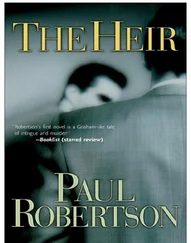John Lauder acknowledged this with a half-smile. ‘How much was it again,’ he asked, ‘that Lauderdale wanted for being deprived o his livelihood?’
Sir Andrew laughed. ‘Ay, he’s such a puir man! Him wi a hoose in Lunnon and the estate at Thirlestane and land aw ower Scotland. He drave a reasonable bargain, John. Rich men can aye be civil wi each ither. I offered him sax thoosan pund for the citadel, and five thoosan pund for the levies, which was a generous sum, but worth it tae keep my lord sweet – sae he got eleiven thoosan pund aw tellt, no a bad income for nae labour.’
‘The Toun wouldna been happy at peyin oot sic an amount?’
‘The Toun didna hae ony choice,’ said Sir Andrew. ‘I was the Toun in thae days, John. Onywey, haudin the duties in oor grup was my priority. Wi the citizens’ drouth and capacity for liquor, it didna tak lang for the Cooncil tae realise I’d made them a guid niffer.
‘That was awa back in 1662, when the King was newly hame and there were debts and favours fleein aboot the country like a flock o stirlins. Aye, an plenty o scores tae be settled tae, eftir twenty years fechtin an sufferin under the kirk elders. I kept ma heid abune it aw when I couldna keep it ablow the dyke, John, an I advise ye tae dae the same in these troubled days – especially since ye hae Janet an the bairns tae think on tae, an no jist yersel wi yer high notions o the sanctity o law.
‘I held ontae that favour eicht years, and there were times, I confess, when Lauderdale’s position at coort wobbled a wee, when I thocht I michtna get the chance tae redeem it. But then the miscreant tendency began tae stir themsels again, and the government was lookin aboot for a siccar place tae lodge the rebel ministers and keep them awa frae the lugs o the ignorant. That’s when the idea o the Bass insinuated itsel intae ma heid, and I went tae Lauderdale and offered him it. There it was, a muckle lump in the middle o the sea, wi an auld fort upon it – needin some repairs, of coorse – inaccessible but handy enough for Edinburgh, and wha should happen tae be in possession o it? Why, Sir Andrew Ramsay, Lord Provost o Edinburgh, that had gotten it as pairt o the lands o Wauchton frae a puir laird fawn on hard times. I niver would hae thocht the brichtest jewel o that inheritance would be an auld tooth stickin oot in the Firth, but there ye are.
‘I reckoned ma income frae the Rock was nae mair than fifty pund per annum, and that was frae sendin lads ower tae lift the solans’ chicks, but I tellt Lauderdale it could be doubled if there was a permanent garrison pit there, the birds managed on a proper basis, and sundry charges levied on whaiver micht be pit tae live in the place. Hoo muckle would ye want for it, says my lord? Oh, says I, no as muckle as I peyed ye for Leith, it’s only a Rock eftir aw. But, I says, it’s mebbe gotten a hidden value if it keeps the kingdom free o rebels. Oot o Scotland, oot o mind, as it were. Weill, Lauderdale took the hint. I’d been votin his wey in Parliament aw thae eicht years, and takkin maist o the ither burghs wi me forby. Weill, he says, suppose ye live tae be an auld man o ninety, that’s nigh on forty years’ income ye’d be losin. At a hunner pund a year, by your accoont? I’ll ask the King tae gie ye fower thoosan pund for it. And he did, John, he did. Fower thoosan pund,’ he finished hoarsely, pouring himself a fresh brandy, ‘for a lump o rock, a flock o geese and a rickle o stanes that ye wouldna keep pigs in. At that price I didna even fetch back ma sheep – it would hae been ower pernickety, d’ye no think?’
John Lauder could not help admiring his father-in-law’s grotesque self-confidence. He himself was always questioning – his own nature and motives, the accepted norms of daily life, the habits of individuals and of society. But Sir Andrew was like the Bass, a solid relentless rock in a swirling sea of change. He was beholden to him in many ways, certainly he could not afford to offend him, but there were times when he wanted to wring his fat neck. Just now though, he wanted his influence to clear him a passage to the Bass. And there was no motive that Sir Andrew needed to know of, other than the one he had given out loud: he wanted to see James Mitchel, the fanatic to beat all fanatics. He wanted to see what made him what he was.
‘Will ye speak wi the Secretary o State then?’ he asked. ‘He kens me. He kens ma loyalty to the King. I would like to see the prison and cast an objective eye ower prejudice.’
It was a nice touch. Sir Andrew shrugged. ‘John, ye’re a guid lad, though ye whiles keep company I dinna care for. Yer cousin Eleis hasna pit ye up tae this, has he?’
‘This is my concern alane, my lord,’ said John Lauder. ‘John Eleis has naethin tae dae wi it. It’s mair than a week since I last spak wi him.’
‘Then I’ll hae a word,’ said Sir Andrew. Then he seemed to change his mind. ‘In truth, I hardly think it necessary tae fash Lauderdale wi sic a triviality. I can arrange it masel. They are ower lax wi the rebels and permit them parcels o food, letters and visits frae freens and faimly when the boat is sailin. There’ll be nae restrictions, I would think, on an honest leal fellow like yersel.’
Lauder had not told his father-in-law the whole truth. It was correct that he had not seen his cousin John for a week: Eleis had been through in the west, where there was an ongoing outbreak of witchcraft, which had already led to a trial and some executions, and would probably be the excuse for more; he had gone to try to establish who or what was fanning the fire of accusation. But Lauder and he had discussed Mitchel in the past, and they had already arranged to meet later that day. Eleis was due back from Glasgow in the evening, and would meet Lauder at Painton’s shop for some food and drink.
Painton’s shop was half-full, but there was a table in a back-room where they could talk undisturbed over their ale. In fact, Lauder noted with some relief, there was enough noise in the place that they would not be overheard, if their conversation should turn on anything requiring discretion. With his cousin that was always a possibility.
Eleis was full of the witch alarm, which had been dragging on since before the winter. In October Sir George Maxwell of Nether Pollok, a noted anti-government man who had been fined and imprisoned several times for promoting conventicles, had fallen ill, complaining of pains in his side and shoulder, and suffering from terrible night-sweats. Around that time a lassie of thirteen or so, named Jonet Douglas, recently arrived in the area from the north, began to linger around the big house at Pollok. She was deaf and dumb, but managed to attract the attention of Sir George’s three daughters, and told them by means of signs and drawing pictures that she knew what was causing his illness. She persuaded them to send two men with her to a nearby cottage. This was the home of a woman called Jean Mathie, whose son had been locked up some time before for stealing fruit from the Pollok orchard. They entered the cottage, and when the woman’s back was turned, Jonet stuck her hand in at the lum and pulled out a little waxen image wrapped in a linen clout. She gave it to the men who carried it back to the laird’s daughters. The wax figure had two pins stuck in the right side, and another down through the shoulder. They removed these, without saying a word to the patient, their father. That night he slept well again for the first time, without the sweating sickness, and the pains in his body slowly receded.
After a couple of days, when it seemed clear that his recovery would be complete, his daughters told him what had happened. Jean Mathie was arrested and sent, protesting her innocence, to the Paisley tolbooth, where she was pricked for witchmarks, which were found in several places.
Читать дальше












